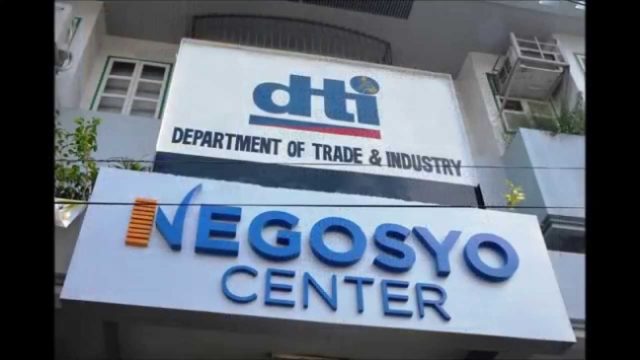
MANILA – When it comes to getting those who were widowed and orphaned by the war on drugs in Brgy. Bagong Silang, Caloocan City and Brgy. Payatas, Quezon City back on their feet, it is largely the local parishes who have stepped in to provide food, school supplies, and even a source of livelihood.
Priests lend money for them to raise pigs, hold gatherings for women to share their stories with each other, and give meals and grocery packs from private donors.
But how is the government assisting those who were left behind?
Interviewed at the ASEAN Women’s Business Conference on Thursday at the Philippine International Convention Center, held by the Department of Trade and Industry, Philippine Commission on Women (PCW), and the ASEAN Women Entrepreneurs’ Network, DTI Undersecretary Nora Terrado encouraged these women to go to their nearest Negosyo Center – of which there are now 600 all over the Philippines – to start their own businesses, whether these be micro, small, or medium enterprises.
According to the DTI, Negosyo Centers are “responsible for promoting ease of doing business and facilitating access to services for MSMEs within its jurisdiction.”
Seven Ms
Here, people could get help with business registration; learn about training, financing, and marketing; and access shared service facilities and equipment, among other things.
“Kung ang simbahan gusto sumali at gumawa ng kanilang programa, ang ganda, ‘di ba (If the Church wants to join us and create their own program, that would be so nice, right)? These NGOs, these corporations, we encourage them, actually. And it’s not wrong. If they need help from us with the program, like mentorship, because we have seven M’s… Mentorship, mastery for training, money if they need it, market – access to market, machine, and then models… These are the ways that the DTI can help,” Terrado said.
Inclusive
She explained that the DTI is inclusive in its approach, with programs in “trabaho, negosyo, at kabuhayan (jobs, businesses, and livelihood)” that were driven not just by the DTI.
“The more, the merrier,” she added.
The DTI is planning to have over 1,600 Negosyo Centers all over the country in three years. It is also developing a mobile component to their services, such as teaching citizens to create a marketplace through Facebook, which is free to use.
“In the future we have to make good use of e-commerce,” Terrado pointed out.
Gender equality plan
PCW executive director Emmeline Verzosa said that, as the Commission is a policymaking body and is updating the gender equality plan for the Duterte administration, “We can include that in the programs we are formulating, we can tell the agencies they have do to something concrete about women in difficult situations.”
“Our role is to remind the various agencies who have run services that directly address the needs of these women, as well,” she added.
Programs for all women
She noted that the Department of Social Welfare and Development, as well as the local government units, should have existing programs for all kinds of women in difficult circumstances.
“We trust that government agencies, even if we don’t hear about it, are working on the ground because they have to do it as part of their mandate to address the needs of the families of victims,” Verzosa said.
Last month, after her confirmation was rejected, former Social Welfare Secretary Judy Taguiwalo said when asked if the DSWD had any programs for the families of suspected drug pushers and addicts who had been killed, especially those in poor communities, that the agency had not created anything specifically for that sector.
However, she stressed that the families could seek help from the DSWD in the form of burial assistance and educational assistance for the children.
They could also ask for hospitalization assistance if the suspects had only sustained injuries, she said.
